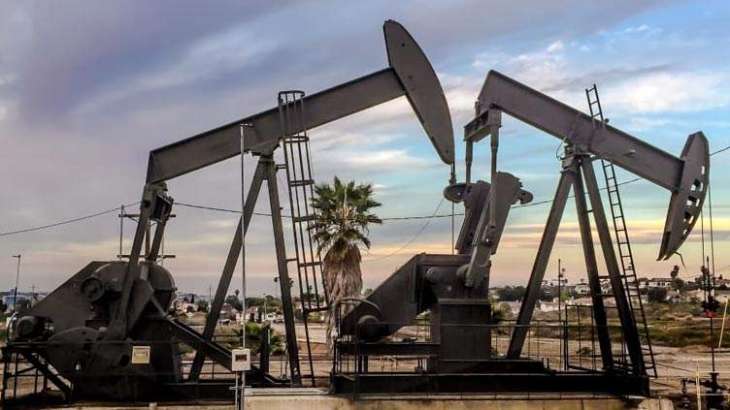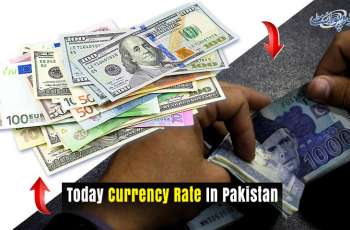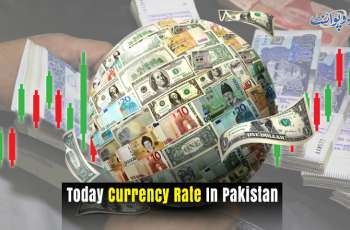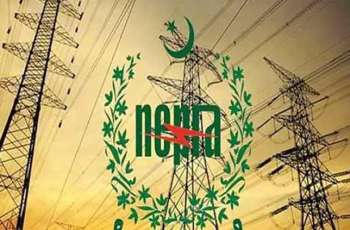The price cap imposed by the West on Russian seaborne crude oil will have a minimal impact on the world energy market, with Russia also losing insignificant amounts of revenue, French energy expert Damien Ernst told Sputnik
MOSCOW (Pakistan Point News / Sputnik - 05th December, 2022) The price cap imposed by the West on Russian seaborne crude oil will have a minimal impact on the world energy market, with Russia also losing insignificant amounts of revenue, French energy expert Damien Ernst told Sputnik.
Last week, the European Union reached an agreement on setting a price cap on Russian oil at $60 per barrel, which went into effect on Monday. The cap will be reviewed every two months to remain at 5% below International Energy Agency benchmark. The G7 nations and Australia also agreed same day to set a $60 price ceiling on oil from Russia.
"This price cap on the Ural crude will only marginally influence the seaborne crude oil market. It is certainly not a major 're-composition of the world market' as announced by some. I don't think the loss in revenue will be significant for Russia," Ernst said.
In the near future, the world will witness only what the French expert said was "a game of musical chairs between tankers' destinations," as some deliveries from the middle East to Asia will be redirected to Europe, while Russia, in turn, will supply more oil to Asia. However, additional transport costs for such redirection will be marginal and will not influence the market, he said.
"The only thing that will change will be the European dominance in the cargo and shipowner insurance market: European insurers will lose the Russian cargo market and these insurance contracts will be offered by other countries such as China or India," Ernst told Sputnik.
The energy expert also said that Russia had increased its tanker fleet by buying around 100 tankers, and had probably set up plans to provide financing and insurance by other means, including with its own insurance products.
In addition, many countries are circumventing Western sanctions, Ernst said. India, in particular, has greatly increased its imports of Russian crude oil to refine it and re-ship the processed products to Europe, according to the expert.
He believes New Delhi will further increase the imports despite the EU decision to impose an embargo on all Russian refined products from February 2023, since Indian products do not fall under the restriction. These sanctions only take away from Europe the majority of refined products it uses, mostly diesel and heating oil, Ernst said.
At the same time, the French expert called the price cap "very selective," as it applies only to seaborne crude oil coming by tankers to Europe. In addition, some landlocked countries such as Hungary, Slovakia or Austria have been exempted from the need to impose the measure and will keep receiving Russian oil delivered by pipeline.
"Moreover, with a price cap of $60 per barrel, Westerners are not taking any risks. It is very close to the market price and will therefore have very little effect. OPEC+, led by Saudi Arabia and Russia, made no mistake about it and announced that it was not modifying its deliveries. It is the 'wait and see' that dominates," Ernst said.
The situation is similar to the EU decision to put a ceiling on energy prices at 275 Euros ($282) per megawatt hour (MWh), while the current gas price stands at about 110 euros per MWh, according to the energy expert.
"They are therefore above all symbolic measures, intended for communication, but which could later be reinforced, now that they exist," Ernst told Sputnik.
Western countries have been seeking ways to limit Russia's income from oil and gas exports since the country launched a military operation in Ukraine on February 24. In September, the G7 finance ministers confirmed their intention to impose a price cap on Russian oil and urged all nations to support the initiative.
In October, the European Union introduced the eighth package of sanctions against Moscow, which included a legislative basis for setting a price cap for maritime shipments of Russian oil to third countries. In addition to the price cap for Russian crude oil, the package provides for the introduction of a ceiling for Russian refined products starting from February 5, 2023.
Last Sunday, the OPEC+ alliance decided to maintain the current quotas for oil production after considering a further cut. Russian Deputy Prime Minister Alexander Novak, commenting on the upcoming embargo, said that Russia would not accept the price cap, even if the measure forced it to cut oil production. According to Novak, such restrictions are interfering with market forces.




